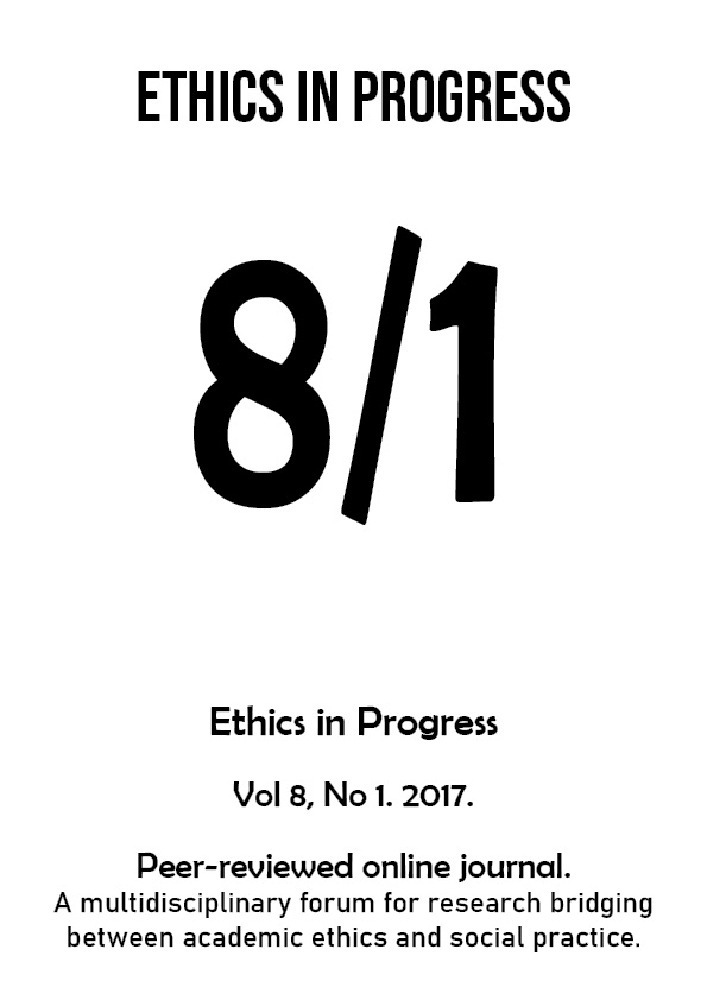Abstract
Many conceptual analyses of the structure and mode of operation of the contemporary society outline a worrying and discouraging framework. They describe the decadence of values and they depict a world populated with individuals who are narcissistically self-oriented, looking for the satisfaction of their own desires, unable to desire, build and keep stable, continual and deep relations and affects. Nevertheless, recent psychological research, supported by the evidence of neuroscientific research, has evidenced that the origins of the psychic development of the individual are connected to the domain of the relational experience. New-borns become persons in and thanks to the context of relations where they live and grown up. Thus, relations are an essential feature and a fundamental and peculiar experience for the human being. This is evident if we try to analyse aspects and dimensions, such as attachment, trust, desire and care. Attachment allows not only the survival but also the internalization of relational patterns which are necessary for life. The trust experience in the primal relations allows the vital energy to be addressed towards the world and to build ties thanks to the experience of faith in the other. Experimenting satisfaction and frustration, possibility and limits in the interpersonal relations fosters the development of desire and of the capability of wait, renounce, choice, care, as well as the necessity/opportunity of recognizing/knowing the other. Feeling himself or herself understood by a caring other prepares the ground for the experience of personal safety and thanks to some special pedagogical reinforcements, it opens to the possibility of taking care of someone else, in a structure of mutual exchanges and material, affective and spiritual support which is necessary for any human being. Significant socio-cultural changes occurred in the last decades have influenced those fundamental experiences and contributed to produce new relational styles and models which are characterised by precariousness and discontinuity. It is thus of primary importance to promote and sustain a reflection and education on these themes with the aim of fostering our needs and relations, whose expression is essential for the wellness and selfrealization of individuals and communities. And this is not only in order to achieve a harmonic development of growing-up subjects but even for adults who want to fully accomplish their life and the related needs of sharing, intimacy and generativity. These results have to be achieved by taking into consideration the peculiarity of modern life and by searching for creative solutions thanks to which, at least partially, we can try to combine the new claims with the essential experience of “being” in a relation.References
Adler, A. 1930. The Education of Children. Trad. it. Psicologia dell’educazione. Roma: Newton Compton (1975).
Bastianini, A. M. 2011. Psicoterapia infantile: una prospettiva di sviluppo per la pratica clinica adleriana, in: Il Sagittario, 28, 33–44.
Bauman, Z. 2002. Liquid Modernity. Trad. it: Modernità Liquida. Bari: Laterza (2011).
Bauman, Z. 2003. Liquid Love. On the Frailty of Human Bonds. Trad. it. Amore liquido. Sulla fragilità dei legami affettivi. Bari: Laterza (2006).
Bowlby, J. 1969. Attachment and Loss. Trad. it. Attaccamento e perdita. Vol. 1: L’attaccamento alla madre. Torino: Bollati Boringhieri (1999).
Charmet, G. P. 2000. I nuovi adolescenti. Padri e madri di fronte a una sfida. Milano: Raffaello Cortina.
Di Summa, F. 2013. Essere protagonisti nella costruzione del benessere: famiglia e scuola in sinergia, in L. G. Grandi & G.S. Lerda (eds.) Per i nostri figli, pp. 75–84. Cuneo: Percorsi.
Erikson, E. 1950. Childhood and Society. Trad. it. Infanzia e Società. Roma: Armando (2008).
Gallese, V., Keysers, C., & Rizzolatti, G. 2006. A Unifying View of the Basis of Social Cognition. Trends in Cognitive Sciences, 396–403.
Gallese, V. 2006. Intentional Attunement: A Neurophysiological Perspective on Social Cognition. Brain Res. Cog. Brain Res., 1079, 15–24.
Gallese, V. 2007. Dai neuroni specchio alla consonanza intenzionale: Meccanismi neurofisiologici dell’intersoggettivita. Rivista di Psicoanalisi, 1, 197–208.
Grandi, L. G. & Lerda, G. S. 2013. Per i nostri figli. Cuneo: Percorsi.
Grandi, L. G. 2002. Viaggio nell’uomo. Torino: Ideanet.
Grandi, L. G. 2016. Amore e psyche. Percorsi di psicoterapia individualpsicologica. Torino: Effata Editrice.
Guidi, R., Fonovic , K., & Cappadozzi, T. 2017. Volontari e attività volontarie in Italia. Bologna: Il Mulino.
Lerda, G. S. & Lo Sapio, V. 2014. The Precariousness of Relationships During the Age of the Digital Native. Aloma. Revista de Psicologia, Ciencies de l’Educaciò i de l’Esport, 32 (2), 77–83.
Lorenz, K. 1949. Er redete mit dem Vieh, den Vögeln und den Fischen. Trad. it. L'anello di Re Salomone. Milano: Adelphi (2003).
Mortari, L. 2006. La pratica dell’aver cura. Milano: Bruno Mondadori.
Recalcati, M. 2012. Ritratti del desiderio. Milano: Raffaello Cortina.
Rizzolatti, G. & Sinigaglia, C. 2006. So quel che fai. Il cervello che agisce e i neuroni specchio. Milano: Raffaello Cortina.
Siegel, D. J. 1999. The Developing Mind. Trad. it. La mente relazionale. Neurobiologia dell’esperienza interpersonale. Milano: Raffaello Cortina (2001).
Spitz, R. & Cobliner, W. G. 1965. The first Year of Life: A Psychoanalytic Study of Normal and Deviant Development of Object Relation. Trad. it. Il primo anno di vita del bambino. Studio psicoanalitico sullo sviluppo delle relazioni oggettuali. Roma: Armando (1972).
Stern, D. N. 1985. The Interpersonal World of the Infant. Trad. it. Il mondo interpersonale del bambino. Torino: Bollati Boringhieri (1987).
Ternynck, C. 2011. L’homme de sable: Pourquoi l’individualisme nous rend malades. Trad. it. L’uomo di sabbia. Individualismo e perdita di sé. Milano: Vita e Pensiero (2012).
Winnicott, D. 1951. Transitional Objects and Transitional Phenomena. Trad. it. Oggetti transizionali e fenomeni transizionali. Dalla pediatria alla psicoanalisi. Firenze: Psycho (1991).




